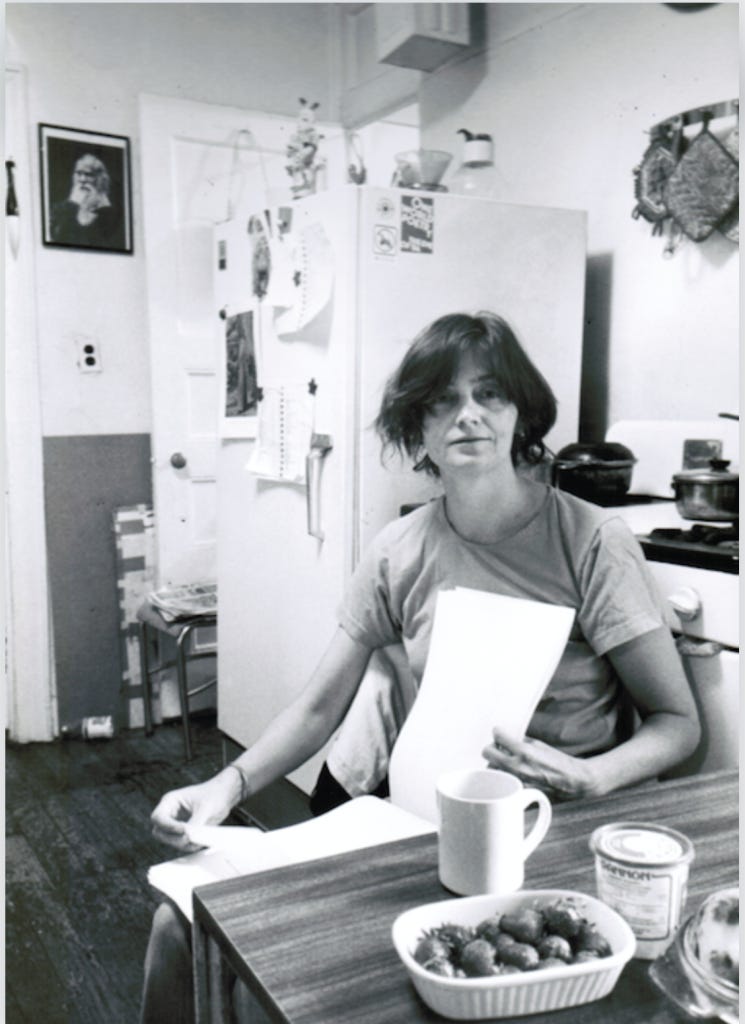Alice Notley died in Paris Monday May 19, 2025. Her poet-sons Anselm and Edmund Berrigan, family and friends were by her side. For me, she was wonder and light, a contemporary I grew up with in poetry. Her work took place at the narrowest space between words and life, a place only the greatest can inhabit, because the words take with them the flesh of the body whose brain and mouth scribe them.
When we heard the news we read out loud from her latest collection "For the Ride" (Penguin): "What about beauty? Oh the glyph's beautiful, mysterious/possibly damning in the sense one can't go back on it, One..." These lines from the long poem "The Glyph of Chaos With Willows" carry a sound unheard of in English until the "One" who is all poet wrote it. Addressed to "One" by "One", Alice Notley took herself and poetry to a place we will all reach, to the other side of life. The dead speak in much of her poetry, her dreams, and her daily life, their voices sometimes clear, sometime muddled by the body that insists on this other side.
Her early work was full of colors, and seasons, and those remained even as tragedies rent her. Ted Berrigan, her first husband, the magnetic eminence of the New York School poets, died young and unforgettable: "Let none regret my end who called me friend." The anecdotal heritage he left to us, and his writing, made as many poets as can fit in a rich fig tree. Alice's second husband, Douglas Oliver, died also well before she did, leaving a solid oeuvre. Alice continued to speak with both as naturally as we do on our phones, but about matters of heart, spirit and detail we rarely if ever dare to verbalize.
Her sons, Anselm and Edmund, took up the family trade big time, and are poets to be heard and read for ages to come, different from one another in style and address, but solidly planted in the fertile soil of Alice Notley's concern, namely "Being." I capitalize and ghilimelize "Being" because Alice Notley lends it the gravity and depth that all philosophers have. What's more is that the liberty poetry affords her surpasses that of philosophers, constrained by the language of philosophy. Her language allows her to write like few philosophers did, unless touched by poetry maybe, like Heraclitus or Nietzsche. And Anselm Hollo, the great polyglot, whose friendship, erudition, and humor accompanied Alice on some of her memorable journeys, and inspired the name of her son.
One magical evening on a hill outside Santa Fe, I was carried away by Alice Notley's voice reading her poetry at sunset. I floated in the magic of her language to a place I cannot describe, but return to in my best memory.
Below is a link on the site of Allen Ginsberg about Alice Notley's work, with generous quotes from her many books, and recordings of her amazing readings. She is chatting with Allen now, two great poets of an age that is yet to come, only seemingly past.















Share this post